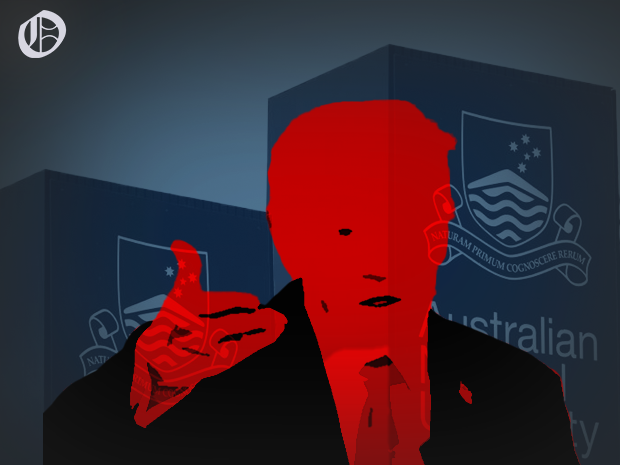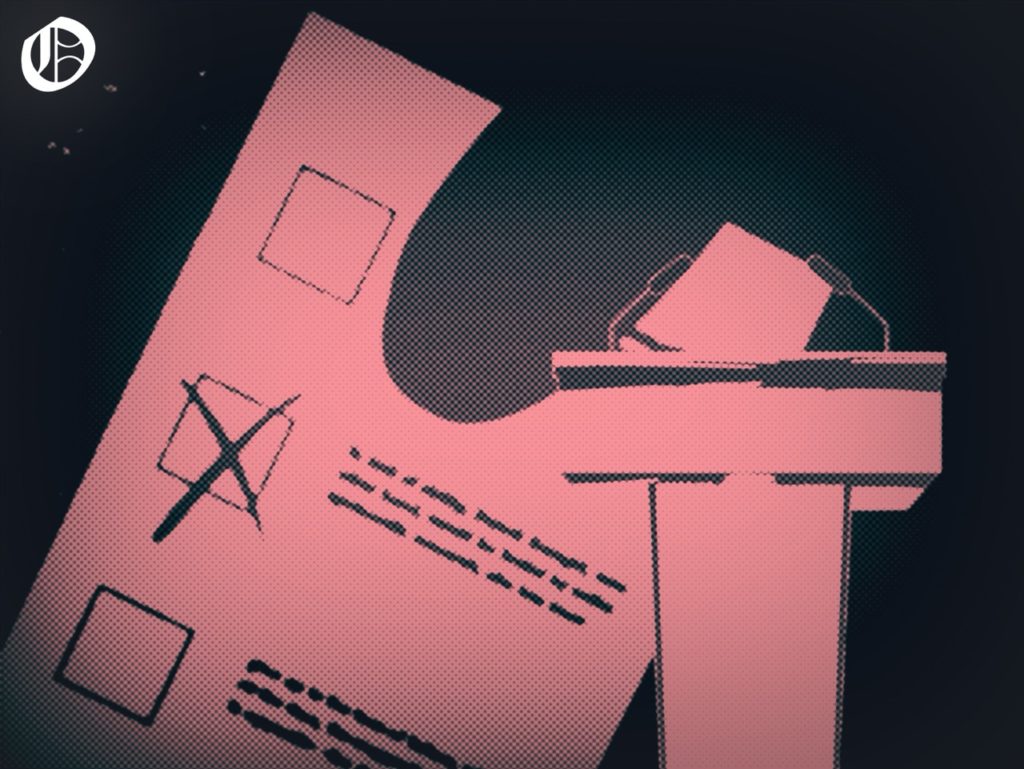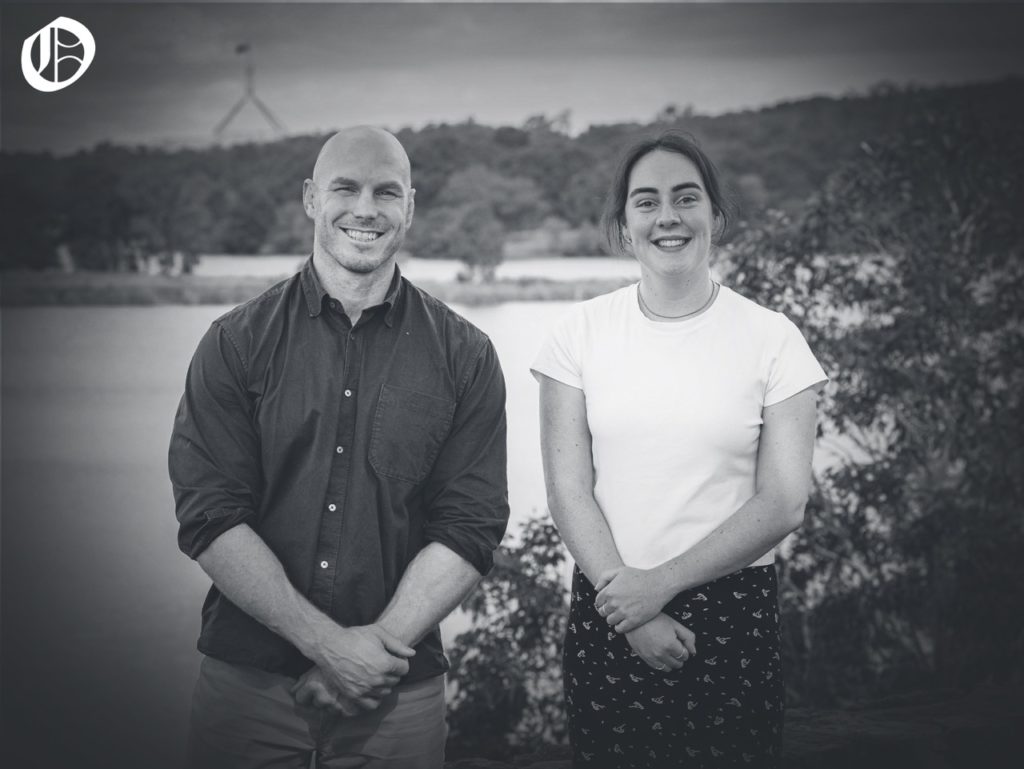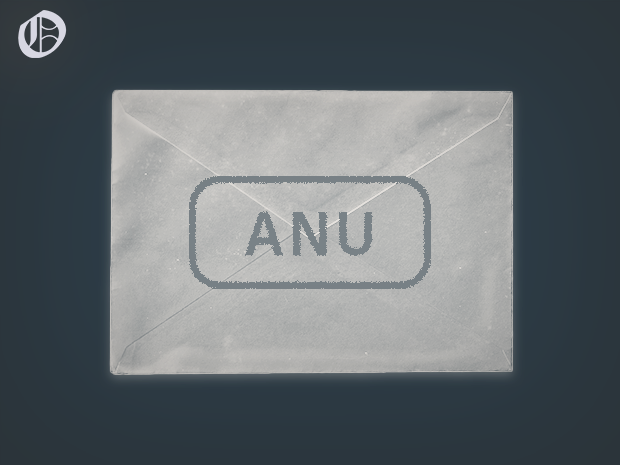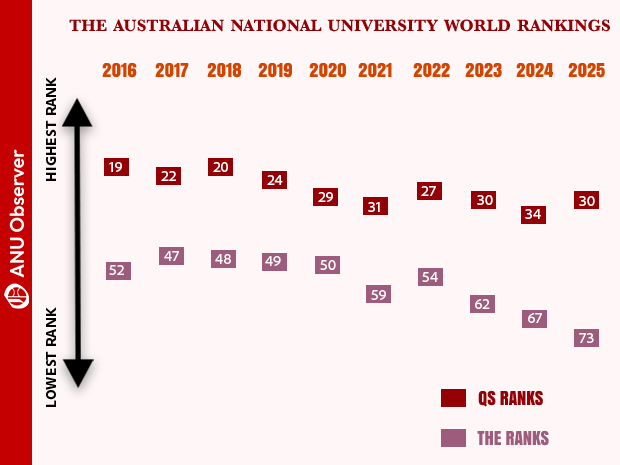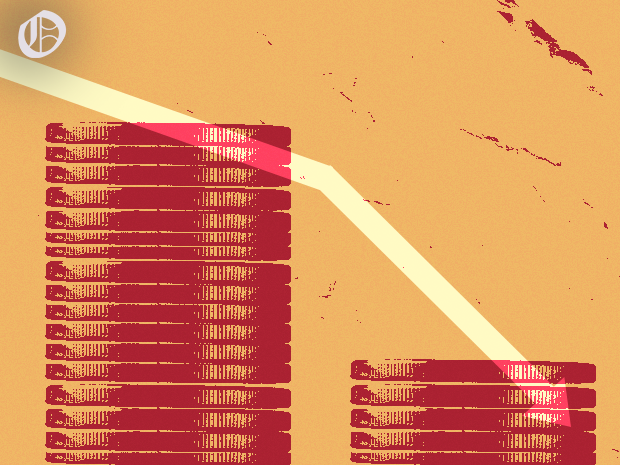SRC 2 Liveblog
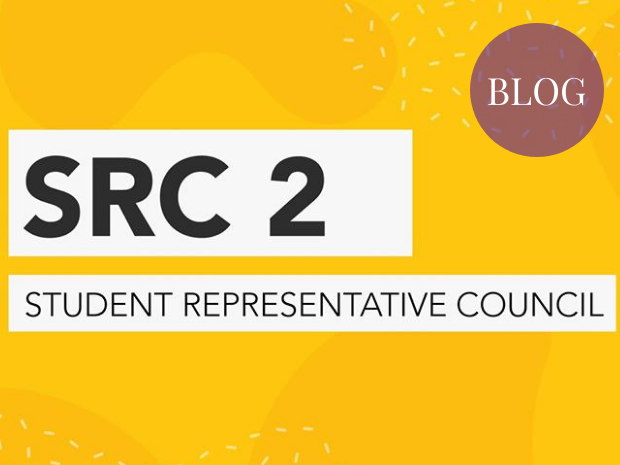
By Adelle Millhouse, Anthony Lotric, Samuel Wright, Rebecca Zhong, and Vienna Daniels. With contributing reporting by Brandon How, Declan Milton and Lottie Twyford
21.10
Panditharatne takes advantage of his right of reply and begins by thanking everyone who applied for the Deputy Education Officer positions. Heslington interrupts Panditharatne to announce that there is a non-ANU student in the meeting and the meeting will be paused until the individual leaves. This appears to be SAlt member, and former ANU student Kim Stern. After failing to provide a current ANU University ID number, Stern is kicked from the meeting.
The meeting continues and the motion passes. The meeting closes at 9:01pm.
21.04
We’re now on to discussion Motion 6.3, the last of the night. This motion appoints Jacob Ellis and Abby Flynn as Deputy Education Officers. Deputies are chosen by the Education Officer after an application process, not by an open vote. Ellis is a current ANUSA Gen Rep, having run on an independent ticket last year. Flynn is a member of ANU Labor Left, and a former member of the ANU Union Board.
ANUSA President Lachy Day moves a procedural that the question now be put. This means that there will be no debate on this topic.
21.03
Pandathratne says that he agrees with the spirit of the motion, but is concerned about the “lack of consultation” with ANUSA, and asks if a statement could be put together collaboratively so that there can be substantive debate. He moves to allow Hill to speak to the motion again. Again speaking to the motion, Hill states that passing the motion would not preclude her working with ANUSA to put together another motion, especially considering how fast things are developing. She outlines a number of issues, for instance student uncertainty around their accommodation, which are very pressing, which she thinks justifies an immediate political statement.
Dominic HT speaks against the motion. He brings up concerns with the motion’s conflicting messaging regarding the census date and ANUSA’s previous view of pushing the date back as was in line with NUS’s standpoint. Hill clarifies that the census date is no longer mentioned in the motion. Non-SRC member Tess Carlton, speaking for the motion, reiterates Hill’s argument that ANUSA should immediately make a political statement, rather than waiting until the next SRC. She argues that many people are looking for ANUSA to take such a position, and that ANUSA should not wait for NUS.
Exercising her right of reply before the motion goes to a vote, Hill says that “there’s nothing in [the motion] that’s counter to what ANUSA is doing”. Hill argued that “supporting healthcare, students and workers.. are all very simple things that a student union should be doing”. She added that the reasons that have been given against the motion are “logistical run-arounds and excuses”, arguing that “the more people … taking a political position [on the issue] the better.” We finally go to a vote on motion 6.2, and the motion passes.
21.01
Mahdu asks whether ANUSA could work towards making the process of getting special consideration for a late withdrawal, considering that having a census date is a national requirement. Grace states that there should be a change to the requirements nationally, and that many students would not want a late withdrawal on their transcript. Indigenous Officer Maddy Crowe asks for clarification regarding the “during semester” portion of Hill’s amendment and whether it pertains to a particular date. Hill says it is inclusive of the whole semester, including the exam period.
Hill’s amendment is seconded by Nick, and Grace speaks to the amendment. She asks how it is defensible that someone should not be allowed to leave a unit at any time without penalty, for instance if they got COVID-19 just before their exam, stating that she does not know why ANUSA wouldn’t pass the motion.Nicholas Carlton speaks to the motion as seconder, pointing to the fact that the Liberal Government has made a previously unprecedented move to raise the NewStart allowance. He says that “these times call for quite extraordinary measures” and voiced his support for adopting these “important and ambitious” measures.The amendment is then taken to a vote. It passes.
Hill, speaking to the motion as a whole, argues that it is important that ANUSA takes a political position concerning the COVID-19 crisis. She reiterates her points concerning pay cuts/freezes people have experienced, and urges for ANUSA to promote unlimited sick leave and financial compensation for students. Nick Carlton asserts that these times call for “aggressive political measures”, and that therefore ANUSA should take the lead in presenting a left wing, progressive stance during these “unprecedented times.”
20.46
Hill states that her motion may now be out of date, as many developments have taken place since it was written. She asks if it can be changed to reflect the current political position of ANUSA. A proposed new section to the motion is posted. This section calls the census date to be extended indefinitely. DSA Officer Ranganathan proposes that this section should be remove, arguing that, though she supports the she thinks that indefinite extension of the census date is unworkable, especially considering the recently announced change to the census date from March 31st to May 8th.
Hill reiterates that students shouldn’t be penalized for leaving courses at any time in the semester. The amendment passes.Hill also proposes an amendment to add “no student should be penalised financially or academically for withdrawal from study at any time this semester” to the motion.
20.37
We are now moving on to Motion 6.2. This motion is moved by Environmental Officer Grace Hill and would have the ANUSA SRC agree that ANU did not respond adequately to the COVID-19 outbreak. The motion argues that, while ANU prohibited social gatherings and events to ‘promote social isolation’, it also allowed classes to continue, ‘undermining the impact of social isolation efforts’. The motion lists actions that ANU should take in its ongoing response over the teaching break. The motion also says that the Government’s response to the outbreak has been ‘reckless and insufficient’ and lists actions that the Government should take in its response.
20.17
We move now to the motions. Motion 6.1 would have the SRC confirm the election of Zoe Ranganathan to the position of Department Officer. Ranganathan is the new Disabilities Officer, replacing Emily Genn. For reasons of Departmental Autonomy, Department Officers are elected within their own collectives, and not by the student body generally. This motion is essentially a constitutional formality and passes without debate.
20.16
Clubs Council Chair Jacob Howland now delivers his report. Howland confirmed that 65 clubs had been re-affiliated with ANUSA, and that the Council is actively helping clubs still waiting. He also revealed that a ‘uni-wide’ group led by Social Officer Sophie Jaggar is currently working on producing a centralised online event calendar. The group is also supporting clubs in their planning of online events.
Howland stated that he wouldn’t take issue with clubs who may fail to meet governance requirements in the current circumstances. Howland specifically notes that clubs that require a Sem 1 OGM in their constitution will not be punished for failing to meet this. Clubs Council Secretary Jordyn Gibson has put together a guide to hosting club general meetings via Zoom.
CCE officers have been given the opportunity to take a break from their roles temporarily given the difficult circumstances they have faced in the past couple of weeks. CCM1 will be held via Zoom at 10am on Friday.
Howland announced that he had been appointed as the CCE’s representative on the ANUSA Governance Review Working Group and expressed disappointment at delays to their activities.
Most re-affiliated clubs have been given access to the funding application system, with grant approvals having commenced on 26 March. Howland anticipates less expenditure distribution this Semester but expects a return to normalcy in Semester 2. He confirmed that there were currently no proposals by trustees to reallocate funds out of the clubs funding budget and away from the clubs council.
20.15
Ethnocultural Officer Zenia Vasaiwalla is absent, but her report will be voted on in her absence. The report begins by summarising the success of completed Term 1 events, noting, however, that the Department will stop hosting ‘Ethnocultural Movie Nights’ due to low attendance. The Department hopes to have moved their ongoing projects and scheduled events online by Week Six. She then clarifies that although the future of the Ethnocultural Revue is uncertain, the creative team is continuing to write material.
20.15
CASS Representative James Eveille calls Hill out for her negative characterisation of the ACTU’s Sally Macmanus’s leadership during this crisis. He follows this with a question which, in reference to a recent Woroni article, asks how the Environment Collective can expect to organise successful climate strikes when they use alienating rhetoric and criticise “progressive institutions” like national unions and the NUS. Hill denies that her Marxism, or the strong political positions taken by the collective, have alienated students, reiterating that the low attendance at the 13 March strike was because of concerns around COVID-19. Hill characterises the response by unions and the Labor party as an “inadequate disaster”, citing the lack of PPE supplies for front line workers, and the fact that not everyone can “self isolate in Buckingham Palace like Prince Charles”.
Prompted by a comment by Carlton, she also flags the possibility of moving environmental activism online during this period.
Gen Rep Vincent Li asked Hill if she would consider putting together an info sheet for international students who are concerned about “repercussions” from their own government in connection to their engagement with climate activism in Australia. Hill agreed that an info sheet would be a good idea, and said that she would be willing to speak with Li if he had any ideas.
20.10
Speaking to her report, Environment Officer Grace Hill said that the turn-out for the 13 March Climate Strike was “pretty good” considering the limitations of COVID-19 social distancing measures. She said that, “while the environment is still deeply concerning, the pandemic…is dominating our political discourse [has] had a serious impact on our turn out”.
She said that the Environment Collective has had an emergency meeting to discuss the “effect of the pandemic … on environmental politics and activism”. She stressed that “environmental destruction during this situation” is occurring “under the radar”, citing the expansion of one of the coal mines in NSW, as well as approvals of gas exploration. Hill also spoke on cuts to health and welfare; she said that “healthcare has been cut and cut and cut”, and said that the “welfare system is not equipped to deal with the situation we are facing”. “We are facing a great depression level crisis.” She states that in these circumstances, “all we can do is talk and organise online,” and “take a political position…that [people] can look to.”
19.56
Grace Hill speaks to her report. The opening paragraphs recognise the severity of the COVID-19 crisis, and how this has been accentuated by government mismanagement. Hill notes that COVID has been used as a cover by the government to further environmentally damaging policies, citing Premier Andrews’s decision to lift the ban on gas exploration as of 17 March.
Hill declares that the response by the government to the bushfires and COVID are not dissimilar. She then states that left wing politics and activism have never been more important. Given this, Hill hosted an emergency meeting, which was used to discuss the current situation, whilst also recognising that the prospect of rallies held in the near future has been jeopardised. Hill aims to think of new opportunities to raise awareness of how the environment is effected in light of the current health crisis. Hill is seeking to move all future meetings online.
As Environment Officer, Hill chaired the 13 March Climate Strike. She estimates that 150 people attended the strike, although Woroni claims that less than 100 were there. Hill, in the report was adamant that despite the low turnout, students were still of the same opinion of the environmental issues facing the planet. Hill commended all those who participated in the protest, noting that 4 was spent on the day
19.54
Speaking to her report, Ranganathan states that she wants to focus this year on standardizing approaches to mental health across colleges and residential halls , but notes that she probably will “not be able to do this project this year” as a consequence of COVID-19. Additionally, few people remain at the residential halls, including each college’s Mental Health Advocates.
Ranganathan notes that she wishes to “look at the scope of what ANU Counselling is doing” and the viability of hiring a counsellor from a culturally diverse background, preferably with the ability to speak a language other than English. Lastly, Ranganathan acknowledges the low engagement that the Disability Collective is experiencing and encourages more people to join as people “don’t have to be ‘disabled enough’” to participate.
19.47
Zoe Ranganathan, who recently replaced Emily Genn as Disabilities Officer, delivers her report. The report begins by stating that all communications with the department will take place via email or Zoom.
A significant section of the report describes the status of a number of department campaigns. The remote access learning campaign is introduced, which through social media content and a possible petition will push for participation marks to be replaced with a more accessible alternative or axed, and Education Access Plan appointments and counselling to be fully available online. The Department’s push for a campus traveller shuttle to be provided by the uni has not currently been successful, the report relates. Ranganathan states that she will work towards having the service up and running when classes resume in person. She states that she is investigating the possibility of developing a ‘Disability Action Plan’ for ANU staff, which would ensure that accessibility guidelines are consistently applied across the University.
The report includes an update on how the transition to online learning is affecting students. Ranganathan states that some academic staff have acted in ‘ableist ways’ by not accepting that some students need the conditions of their EAPs to be met now that classes are online. She also flags that she is working to prevent assessments, such as end of semester exams, from having their weighting increased, as this can disadvantage students whose health fluctuates.
To conclude this section of the report, Ranganathan reports on her collaboration with ANU’s AccessAbility and Employability department to ensure that disabled students have better access to graduate job opportunities.
The next section of the report details proposed collaborations with other organisations, such as with the International Students Department, Residential Halls, and Academic Colleges.
Lastly, it is flagged that the Spoons space is now only open to provide an accessible entrance to other offices, that Spoons Week has been tentatively scheduled for week eight of Semester 2, that all department events have moved online, and that the Disabilities Department now has an instagram page.
19.45
International Officer LC Yip delivers her report. She flags that many students have asked her about the travel bursary and hardship scholarships, and directs them to new information recently released by ANU. Then, she announces that the ‘Mini O-Week’ that was planned for Week Eight has been put on hold, and that future department meetings and events will be moving online.
International Students’ Officer LC Yip speaks to her report. She is currently exploring options in regards to transport from Canberra to Sydney or Melbourne for international students who are trying to get home. She goes on to confirm that international students affected by the travel ban will be able to benefit from the residential hall contract cancellation arrangements. There were no questions for Yip.
19.43
The Queer* Report is up next.
Officer Shivali Trivedi is not present for the meeting, but her report will be voted on in her absence. The report highlights some important motions passed to update the Department’s constitution, as well as the election of new committee members. As with other departments, events for the Queer* Department have been affected by COVID-19 social distancing measures, something which Trivedi says will be addressed by moving “everything online”.
A special meeting was held on 5 March to pass changes to the constitution. According to Trivedi, these changes entailed ensuring that the constitution was organised in a more efficient way, as well as implementing minor changes to wording and changes to the structure of exec positions in the department.
19.38
Law opens with a content warning for sexual assault, family violence and harassment. Starting with a welcome to her new team members, Law details the “wholesome” content including group chats that have begun during the self isolation period.
Providing an update for the Universities Australia Survey, Law announces that the survey has been postponed. Furthermore, SVPS have moved consultations online. She notes that the COVID-19 crisis is going to dominate mental health work for the foreseeable future as “people may not have the mental capacity to deal with [the consultations] now.” Law said that although she was not “super trained in family violence”, she wished to provide greater support in that area as she expects a rise in family violence related disclosures during the isolation period.
Environment Officer Grace Hill asked Law if the Department would be taking a “political position” concerning the impact of COVID-19 measures on women, who are essential workers in “feminised industries” like teaching and nursing. Law said that it was not something that had been discussed within the Department. She thanked Hill for raising the issue, noting that “from an advocacy perspective” the matter would be “more powerful coming from the NUS” and the NUS Women’s Officer.
Treasurer Maddy Wang asked if Law’s Zoom background was from The Office, which Law confirmed.
19.32
Content warning: sexual assault and sexual harassment
Women’s Officer Siang Jin Law delivers her report. Starting with a COVID-19 update, Law notes the changes made to adapt to the new social distancing restrictions, including online virtual collective meetings through Zoom, cancelling all in-person events and opting for online activities instead and self-care isolation packs. Law goes on to announce the new Women’s Department committee members.
Law announces the successful completion of a variety of on-campus events that were carried out before the campus-wide event ban was put in place. Continuing projects include Respectful Relationships advocacy in which a Universities Australia Survey into sexual assault and harassment on campus is intended to be carried out pending developments regarding COVID-19 – it is currently postponed. Continuing on, Law mentions the Sexual Violence Prevention Strategy (SVPS) launch video as it has been put on hold indefinitely due to COVID-19.
The Women’s Department’s sex and sexuality campaign will be moved online. Law acknowledges that it is necessary to carry out the campaign in a sensitive manner given the current climate. A schedule of online activities will be released soon.
Law is also working with the Governance Review Working Group to ensure more options for minority and marginalised groups.
A meeting was held on the 10th of March with all gender and sexuality advocates from residential halls in order to explore ways in which the Women’s and Queer* Departments could support hall advocates. Changing circumstances due to COVID-19 has caused the postponement of their initial plans but they are currently working out how to continue to support the advocates under the new circumstances.
Law notes that she has received a number of SASH disclosures that have been escalated appropriately and she has offered support where needed.
19.30
Indigenous Officer Maddie Crow is now speaking to her report. Beginning with a COVID-19 update, Crow says that the pandemic has caused all events and plans to be cancelled for the remainder of the semester. Crow says that they will be trialing Zoom for department meetings. Though all semester one events have been cancelled, Crow says that some events, such as the ‘jewellery making workshop with Gillawarra Arts and Koorioke’ will go ahead in semester two. Crow also says that the Department is looking to create self-care packages for students within the Department. Although there is no concrete information, Crow says that at this time NAIDOC week will be going ahead. Crow says that the ANU RAP Meeting has been postponed.
The Indigenous Department held its elections on 9 March and Crow welcomes Lilli Ireland as the Department’s secretary and Zane McMillan as treasurer.
Crow says to take her report as read and that, similarly to the others, all of her plans have changed for the year and she is “just trying to cope with that.” No questions are asked of Crow.
19.29
Social Officer, Sophie Jaggar, is now speaking to her report. In it, she mentions that most O-Week feedback has been positive. However, there was a lot of negative feedback surrounding Market Day which she will pass on to her successor to ensure that this will not happen next year. Some of the issues included the location of stalls, and the communication regarding this.
The Friday Night Party also attracted criticism for the prices and variety of food and drink available for purchase. Some improvements for next year will surround the lockout/pass-outs, ticket and other pricing, and how to limit the amount of free viewing spots.
The proposed make-up O-Week for international students who were affected by previous travel bans is to be cancelled due to the developing COVID-19 situation. She also notes that it is still unsure as to whether Bush Week will go ahead at this stage.
Jaggar is working with Charlotte, Clubs Council Community Officer to create an online learning module for Clubs which should be completed by SRC 3.
CASS Rep James Eveille asked whether Jaggar had considered the prospect of organising an online Bush Week in Semester two. He also asked if she has considered cutting her hair into bangs while in social isolation. Jaggar responded that she would take Eveille’s second question on notice. She stated that she is currently waiting on “guidance from the University” on the issue of Bush Week, which she expects “sometime around May.” She said that she was “grappling with the likelihood” that any in-person events would be “much smaller”, due to government restrictions. She also said she anticipates a “probable lack of sponsorship”, given that “businesses are struggling”, resulting in less income to put on more events.
19.28
Wang informs the SRC that the Alumni Committee met for the first time today, and that it elected a Chair, Deputy Chair and Secretary. Dom HT asked whether the ethical sponsorship list which was promised last year has been finalised. Wang replies that she is not happy with it yet, and will be putting together a committee to work on it at SRC 3.
19.27
Treasurer Maddy Wang informs the SRC that the Alumni Committee met for the first time today, and that it elected a chair, deputy chair and secretary.HT asked whether the ethical sponsorship list which was promised last year has been finalised. Wang replies that she is not happy with it yet, and will be putting together a committee to work on it at SRC 3.
19.26
Treasurer Maddy Wang begins her report. She lists the expenditure report detailing profit and loss from the period of December 1st 2019 to March 31st 2020. Following the expenditure report, Wang touches on the SSAF funding for 2020. ANUSA will receive ,961,622 this year, that’s ,969 less than 2019. So far 4,648.80 has already been allocated.
Wang notes that all departments should have received their baseline funding, honoraria arrangement and written notes from their finance training. ANUSA has finalised their requirements for their audits with external auditor PKF forming a report by the end of April.
Wang wants to create sponsorship guidelines for ANUSA based on the University of Melbourne Student Union (UMSU) Ethical Sponsorship and Advertising Policy model. She proceeds to outline a process for building the guidelines that will involve the assistance of ANUSA’s lawyer and the formation of Sponsorship Guidelines Working Group (SGWG). The SGWG will work to finalise the guidelines between SRC 3 and SRC 4 although she is unsure if they will be completed by SRC 4. Right now Wang is aiming to have it finished by SRC 5 though it may take longer given the current constraints.
Wang cannot yet present a total loss and profit statement for O-Week and Friday Night Party due to several debts still owed to ANUSA. The final report will be presented at SRC 3.
19.24
Speaking to her report, Heslington notes that a lot of things have been pushed back and changed due to the current COVID situation and states that her report is basically the same. Heslington returns as chair and opens up to questions. Panditharatne asks whether livestreams for SRCs will be possible in the future. Heslington says that this will certainly change during future meetings and notes that Observer is still carrying out a liveblog of the SRC despite no stream being available. Carlton asks about the governance review and its current status given the COVID-19 crisis. Heslington, stating that she does not wish to push the organisation through massive change at this time, and reiterates that the review has been pushed back to Term 4.
19.21
General Secretary Taylor Hesling now delivers her report. Heslington welcomes everyone to SRC 2 and welcomes Zoe Ranganathan as the new Disabilities Officer. Heslington goes on to explain that due to the COVID-19 restrictions, Zoom will be used to conduct all SRCs, CRCs and GMs. She also gives directions and advice on how to access Zoom and how meetings will function through Zoom. Due to the COVID-19 restrictions, Heslington says that the Governance Review has been delayed and that the Governance Review Working Group has had discussions as to what the process will look like moving forward. The Working Group is currently aiming for amendments to be presented at a General Meeting in Term Four. Consultations with students are currently postponed until further notice. Heslington also says that student media will be provided with statements after meetings have taken place.
As ANUSA Representative on the Academic Quality Assurance Committee (AQAC), Heslington says the second AQAC meeting occurred on March 19 and that the meeting discussed methods for publishing grades on Wattle and the ‘disestablishment’ of courses that have not been taught for a long time. Most of the AQAC’s work has been pushed back, again, due to COVID-19.
19.18
Gen Rep Carlton discusses the recent stimulus packages implemented by the government and asks Panditharatne if political pressure on the Liberal government will continue, given that there’s basically “no opposition to Morrison at the moment”. Skanda agrees that more should be done in regards to the packages but says that working closely with the NUS and continuing to advocate with them is the best way to bring about change.
Dom HT asks whether there has been progress on the campaign for 13-week Semesters, a campaign promise for Panditharatne. Panditharatne says that he has raised this issue with the uni, but added that “there wasn’t much appetite for change” in the current circumstances. However, he notes that the current semester format – with the extra pause week being added to the calendar – will act as “a trial run” of sorts that could be used to lobby the university.
Environment Officer Hill asked Panditharatne why he was unwilling to “put out a political position” in order to put pressure on the Liberal government. Hill argues that, in light of the fact that the union movement has not taken left wing leadership on this issue, ANUSA should take an explicit political position. Panditharatne said that the situation is “changing day-by-day”, and that the time spent on making a statement would not be as effective as engaging in “direct advocacy”. He added that it’s hard to expect a political position straight away, considering that the situation is changing so “rapidly”. He also disagrees that the trade union movement has not had any wins, and that they could make more aggressive statements if the union movement “goes rouge”. He also notes that “the revolution isn’t going to start in the ANUSA SRC”.
Gen Rep Carlton asks what Pandatharatne’s position is on a rent freeze. Panditharatne states that he is not against it in principle, but that he needs to check if it’s what students want before ANUSA advocates for it.
19.17
Education Officer Skanda Panditharatne is now speaking to his report. In it, he states that he has been working on the NUS campaign to lower the age that students can receive the independent youth allowance. Panditharatne also commends ANUSA, students and the front-line health workers for their contributions to assisting with the COVID-19 Crisis. Panditharatne encourages students who are in need of assistance “in any way” to contact his department. Beginning his update on the COVID-19 response, Panditharatne outlines the three major areas he has advocated for, including welfare, wokers, and renters.
Panditharatne moves on to discuss the technical issues faced with Education Committee 2. This meeting was scheduled on Zoom however a software shift to Discord was made instead. Panditharatne also commits to regular Facebook updates for the Committee. The election of Jacob Ellis and Abby Flynn as Deputy Education Officers are also to be attempted in the upcoming SRC.
The Teaching and Learning Development Committee has been postponed due to COVID-19 and is anticipated to be held later in the year. The funding for the First year camp which was also cancelled has been re-allocated to student assistance grants. Panditharatne also hints at a possible movement to a full online exam system
Yates asks whether discussion about re-accreditation with the NUS, which traditionally takes place during SRC 2, will take place. Panditharatne says that the priority at the moment is COVID-19, however SRC 3 is a possibility.
19.13
Tom Garratt asks Janagaraja the question raised previously, regarding leniency for marks and whether or not Janagaraja had anything from the ANU regarding potential changes. Janagaraja responds noting that the only changes that have been discussed so far are that requirements have been reduced to allow for “lighter documentation” and that “personal statements will be accepted” when applying for special consideration.
Environment Officer Hill asks for more information with regard to how exams are going to be conducted. Janagaraja says that all exams that were to be in-person have been cancelled and alternatives are up to the respective course conveners. Janagaraja also notes that there has been a lot of discussion surrounding how academic integrity can be maintained under the new exam conditions as she has been “encouraging open book exams” but this may not be possible for all courses and further discussions are needed in order to find suitable arrangements. Gen Rep Yates asked about the use of Proctor software for exams. Janagaraja says that security concerns have been raised in regards to the software and that the features should be further explored in order to assess whether they are safe enough to be used by students.
19.11
Content warning: sexual assault and sexual harassment
ANUSA Vice President Madhu Janagaraja presents her report next. In her report, she discusses the advocacy work which ANUSA has been engaged in regarding the University’s transition to remote learning over the last weeks. Janagaraja also reminds students that their first point of contact for support services is [email protected] for matters relating to COVID-19. Other support services, including Student Central, ANU Counselling and Academic Skills, are also available to students via online appointments.
Janagaraja writes that student representatives have had “many wins for students after the last few weeks”. Although addressing and advocating on various welfare and academic issues has been “exhausting”, Janagaraja says that she “firmly [believes] that’s something to be proud of,” and thanks all the student representatives who were involved. She noted that ANUSA received around 100 emails from students expressing concerns relating to assessments and classes during the teaching pause, as students in some courses received conflicting information or delays in updated course information. She said that ANUSA reps responded to emails by “escalating as necessary until the issue was addressed.”
Janagaraja also provides additional information relating to deferred assessments and extensions, noting that all assessments have all been deferred by at least one week from its original due date or academic week. She also wrote that extensions “can now be granted with a little more leniency” in relation to documentation that students must provide.
She notes that the census date has been pushed back to 8 May (Week 8); this was announced by the University last Friday. Janagaraja says that ANUSA is currently still advocating for ANU to adopt an opt-in grading system that would allow students to “elect for certain courses to be awarded a ‘course requirement satisfied’ grade as opposed to a normal mark”, with the intention that their GPA will not be adversely affected. This has not yet been confirmed by the University
Other matters relating to the transition to remote learning included ANUSA’s continued advocacy for a uniform waiver of participation marks across all the colleges, with the option for marks to be redeemed through other assessments depending on the course. She said that she was coordinating with college and course representatives to ensure “we stay responsive to the maintenance of course quality and experience by students,” particularly in relation to accessibility of course materials, assessment weighting and timelines, and the handling of EAPs.
In the remainder of her report, Janagaraja discussed the progress of the IDEA Oversight, Mental Health and SASH committees this year. She noted that meetings have been disrupted for all of the committees this year due to COVID-19 measures. Similarly, ‘student-facing’ initiatives like the BKSS have switched to remote operation, with initiatives such as an ANUSA Virtual Student Space on Facebook, and a BKSS Discord currently underway.
18.59
18.51
Gen Rep Aryanne Caminischi congratulates everyone on their work and asks Day about the recent announcement of ANUSA receiving an extra 1 million dollars in funding from ANU. In response, Day notes that ANU has given half a million dollars to ANUSA and PARSA. This supplements ANUSA’s usual grant system. He also notes that there have been a lot more requests to the service than their previous load, and encourages students to provide feedback.
2019 CAP Rep Dom HT asks about what is happening with the health co-op and flu shots, as he heard that it may not be going forward. Day says he hasn’t heard anything from any official channels, but did personally have his appointment cancelled. He says that “people have been slow to respond at the moment”, but that he’ll “do his best to take [the question] on notice”.
18.34
ANUSA President Lachy Day is now speaking to his report. Day welcomes everyone to SRC 2 and encourages any feedback that anyone might have and encourages those in need of support to contact him or ANUSA’s student assistance team. Day congratulates all of ANUSA for their hard work during the past few weeks and specifically lauds Vice-President Madhu Janagaraja and Gen Rep Ben Wicks as special mentions for their work.
ANUSA is working to ensure that all students, including those who never made it to Australia due to travel restrictions, are getting the support they require. Day says ANUSA has been working hard to ensure that the student package announced last week is “put to students in a timely manner”. ANUSA is also being allocated 500,000 dollars by ANU to supplement their existing grants budget. However, Day also says that they do not know when they will have access to the money.
In regard to the rumoured opt-in pass/fail system, Day says that the ANU’s final decision will be released soon.
18.29
There’s a procedural to move all reports on bloc to prevent unnecessary voting by Gen Rep Ben Yates. This passes.
18.28
And we’re off for the second SRC meeting of the year! SRCs, too, have moved onto Zoom, and Gen Sec Taylor Heslington spends a good few minutes walking everyone through the functionality. SRC members will vote using the ‘yes or no’ function, and will have to virtually raise their hands to be able to speak.
Many SRC members have taken the opportunity to implement virtual backgrounds. Special mentions to Bens Wicks and Yates, whose backgrounds helpfully remind us which Ben is which; and Vincent Li, who has brought the SRC’s usual Marie Raey meeting room into cyberspace.




